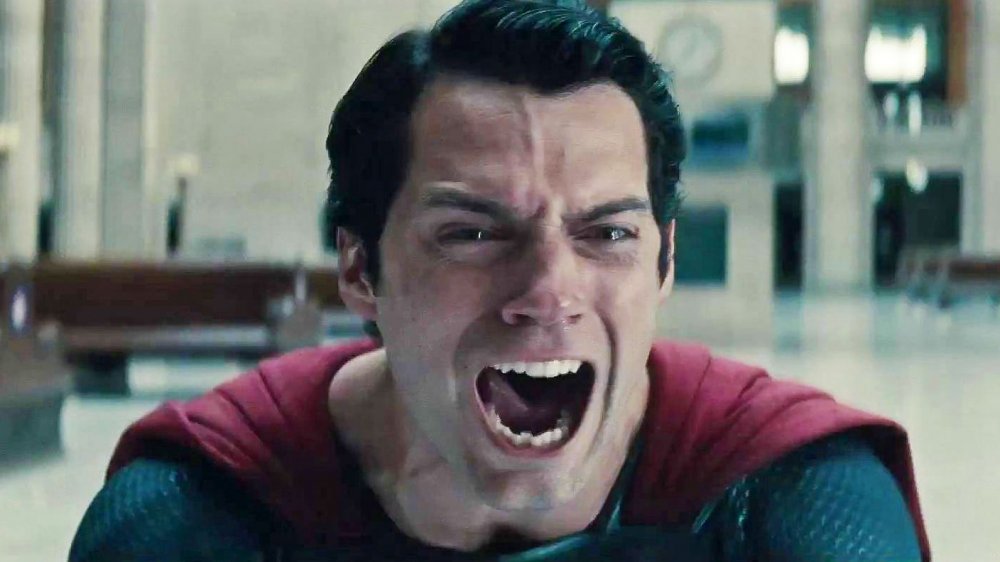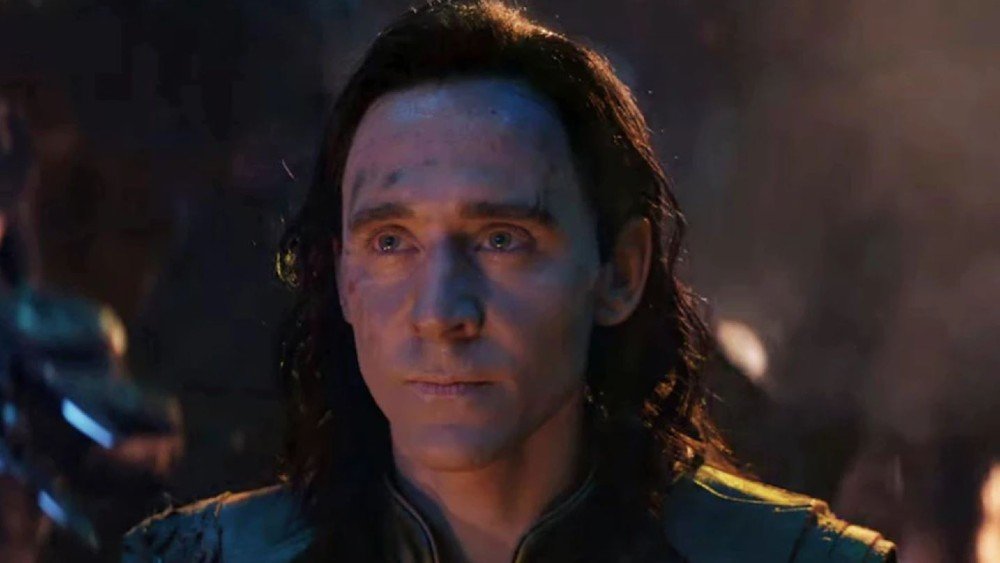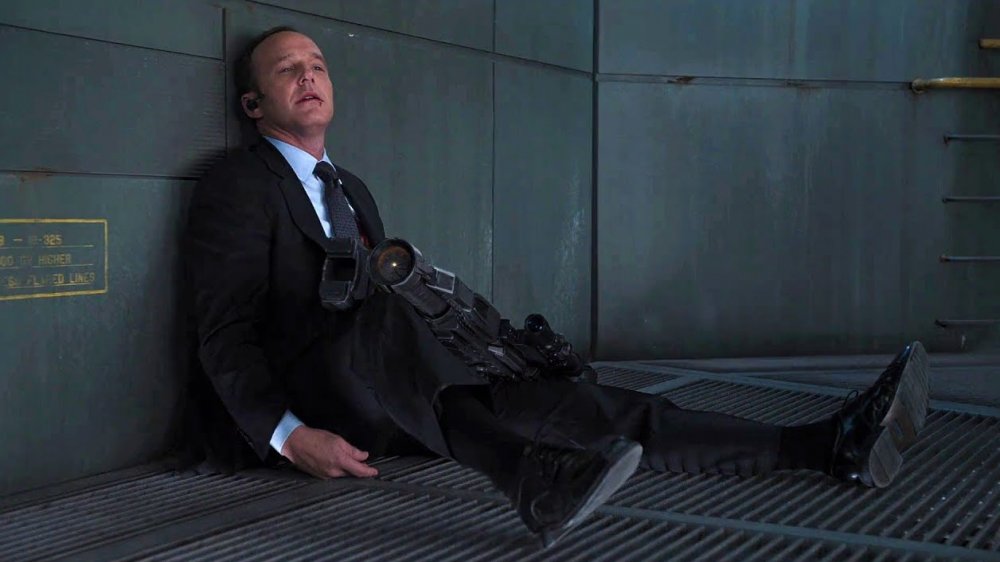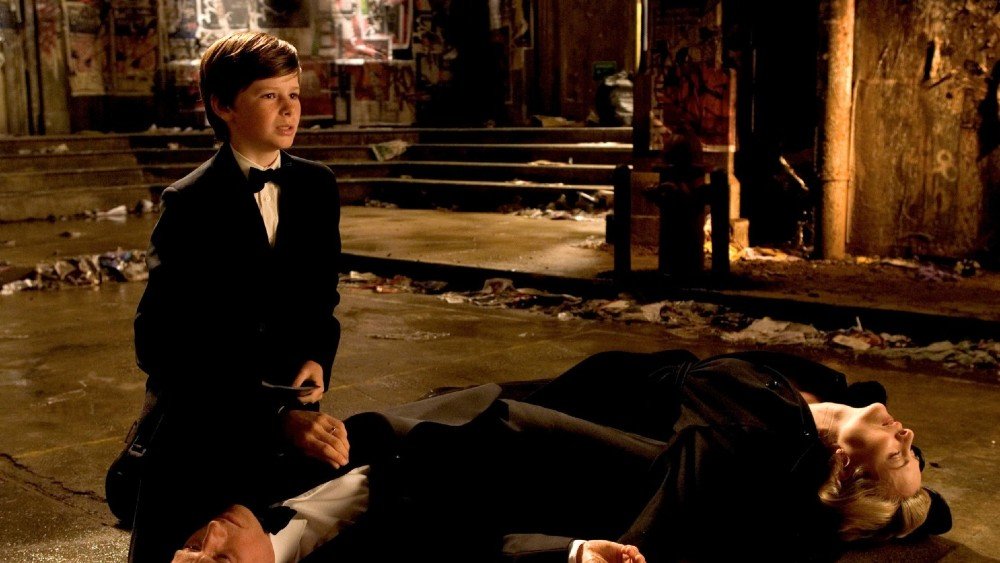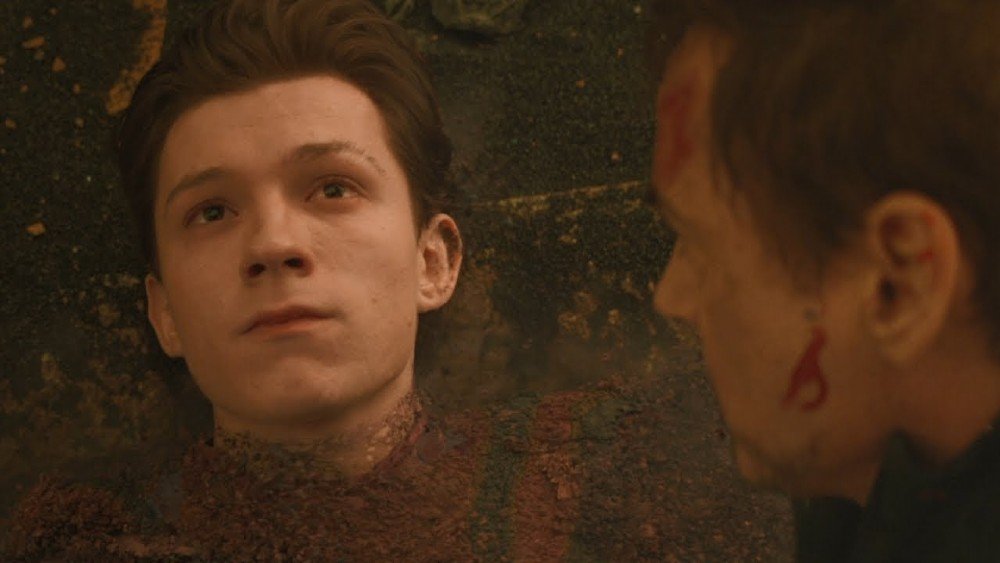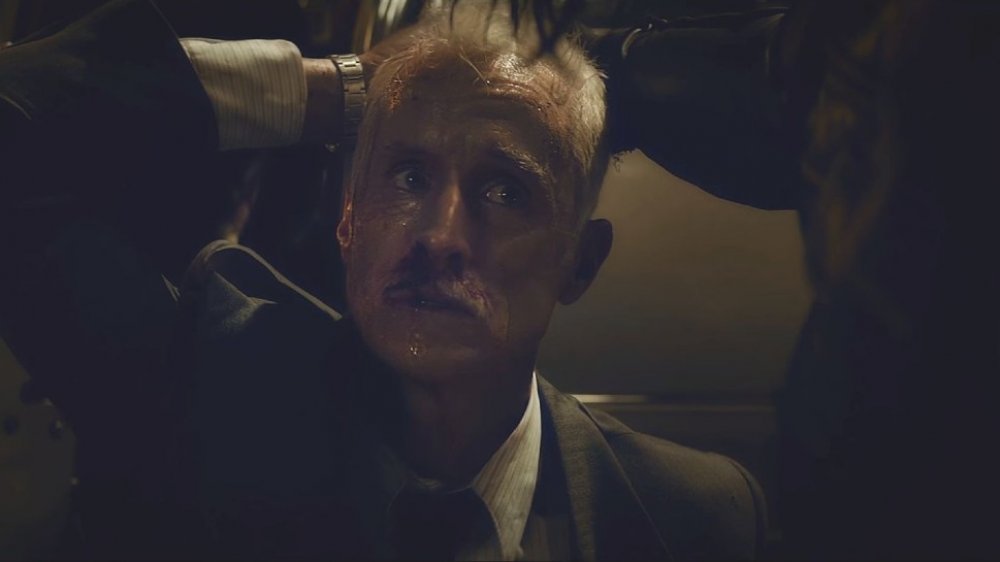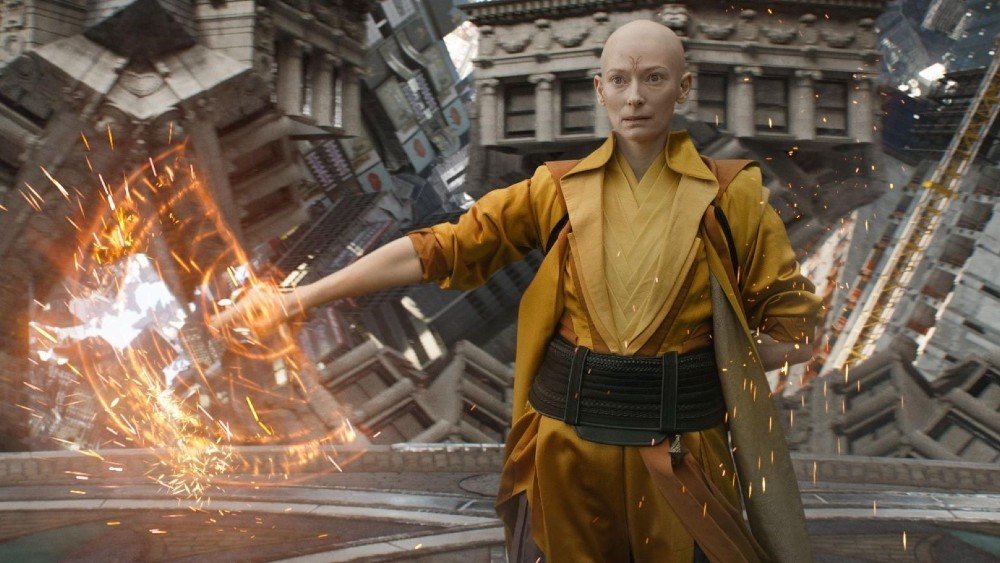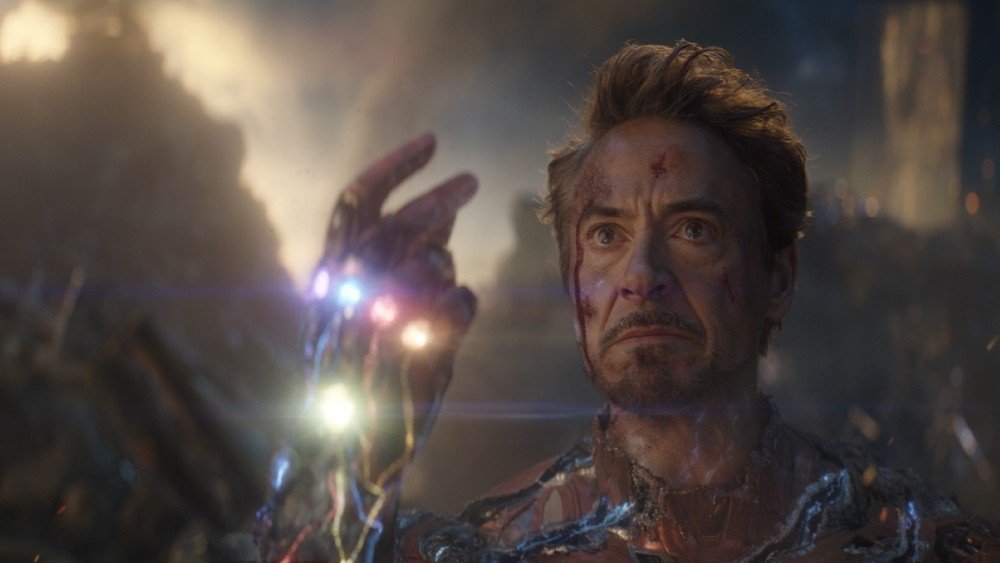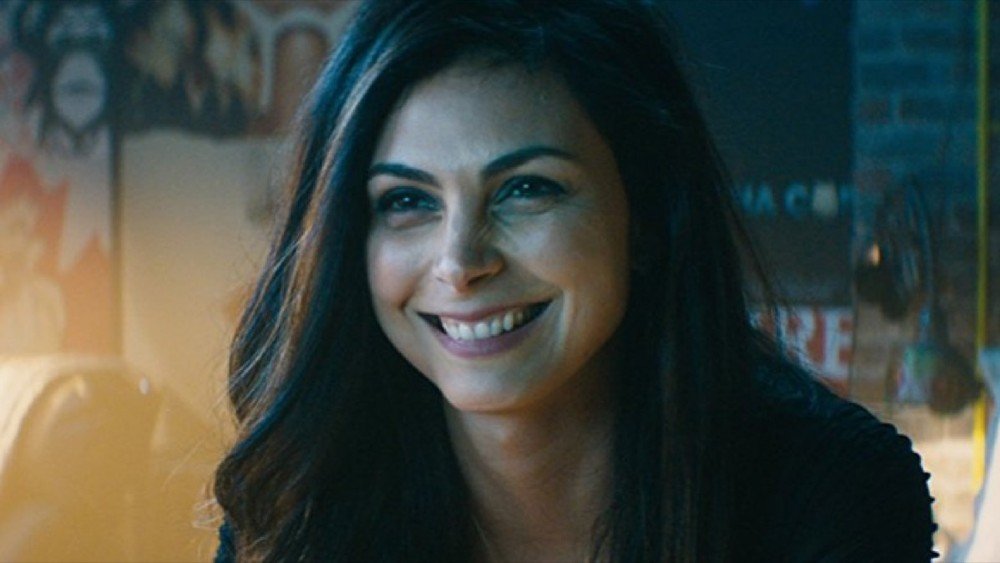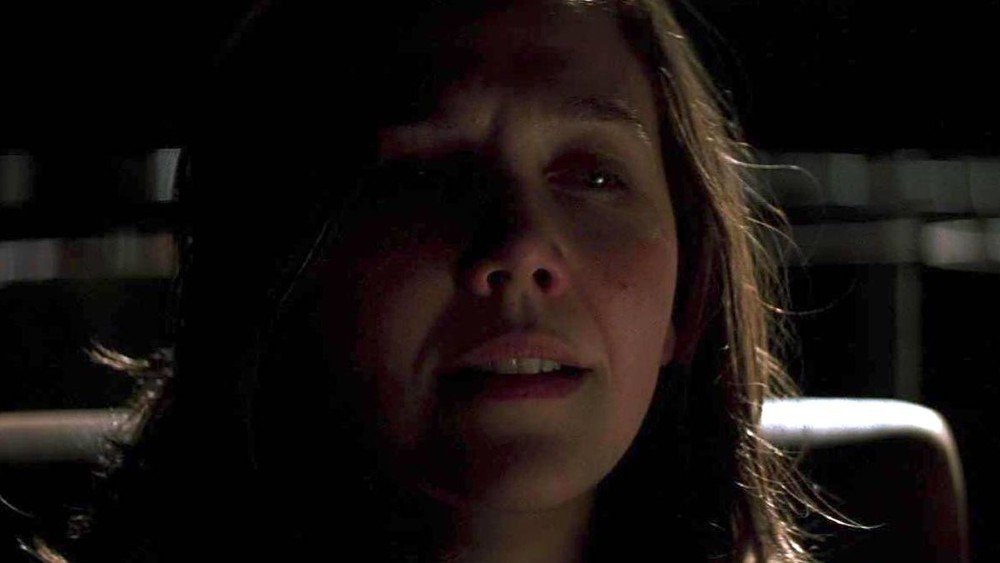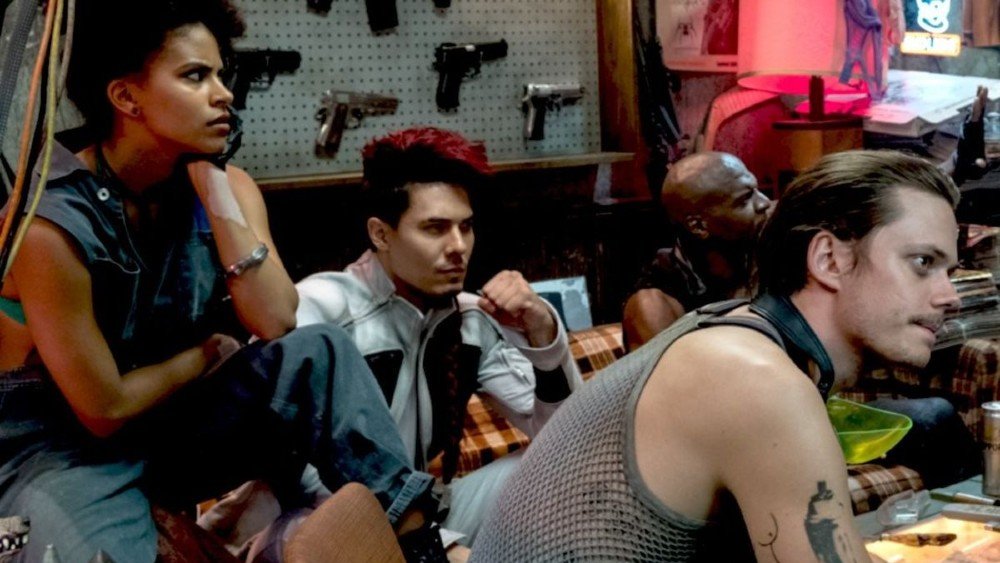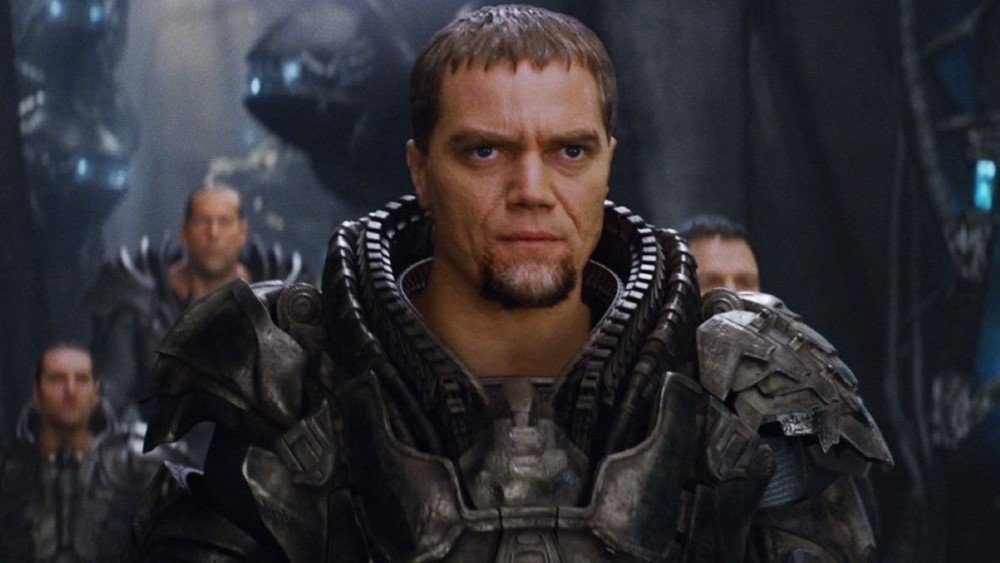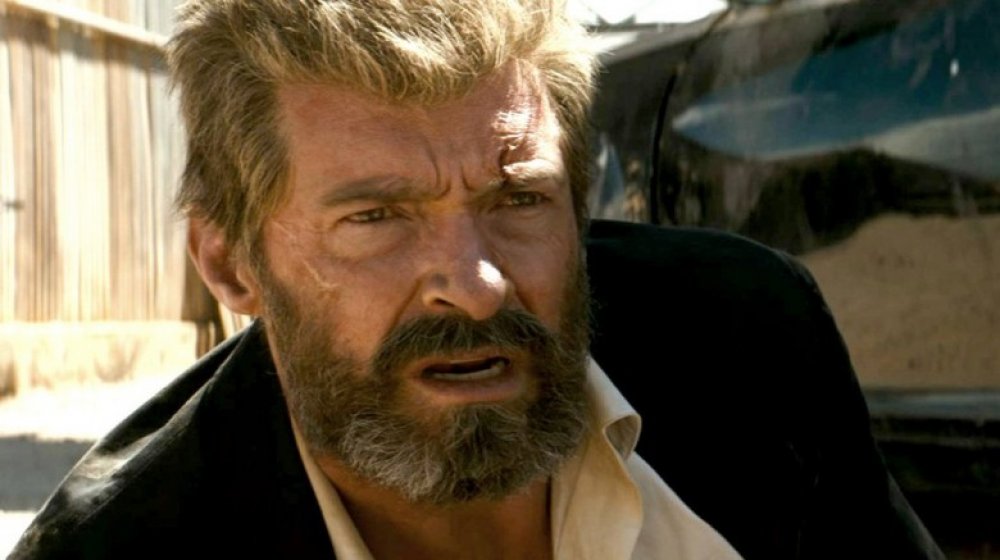Superhero Movie Deaths We Can't Forget
It's no secret that superhero movies, like the comics upon which they're based, aren't made just for kids anymore. For better or worse, that means death shows up a lot more in today's superhero movies than it did when Christopher Reeve and Margot Kidder played Superman and Lois Lane.
Like death scenes in any other kind of film, the final gasps of a character in a superhero movie can stay with us — particularly when it comes to films that are part of expansive narratives like those of the MCU or DCEU. Often when a character dies in those films, we're not just losing someone who's been with us for a single movie but multiple films that span of several years or more. For example, by the time the MCU's Infinity Saga concluded with 2019's Avengers: Endgame, we'd lost heroes and villains who'd been making us laugh, cheer, and everything in between for a decade.
And for whatever reason — whether the characters are superheroes, supervillains, or perfectly normal people caught in the crossfire — what follows are some of the most memorable superhero movie deaths ever to darken the big screen.
Loki's death was brutal
Tom Hiddleston's portrayal of Thor's adoptive brother, Loki, is one of the MCU's unquestionable successes. As the trickster god whose allegiances seem to change from film to film, Loki has proven one of the most popular characters in the MCU, whether he's working with or against Thor (Chris Hemsworth) and the other heroes. That's part of why his death in the opening scene of 2018's Avengers: Infinity War proved not only memorable but shocking.
What really makes Loki's death so surprising is the manner of his death. When Thanos (Josh Brolin) literally chokes the life out of his former herald, it's one of the most brutal moments in the Infinity Saga. We saw him "die" twice before in the movies, but neither of those fake-outs came close to the ugliness of watching the Mad Titan calmly and easily wring the last breaths from the god of mischief.
There were plenty of different theories about how Loki wasn't "really" dead. Between the announcement he would get his own Disney+ miniseries and the character's history of fooling his brother into thinking he was dead, it was an understandable reaction, but by the end of Avengers: Endgame, the truth was clear. While we would eventually become acquainted with a version of the character from a parallel timeline, Loki hadn't escaped anything.
Agent Coulson needed to die for the Avengers to become a team
Clark Gregg's portrayal of Phil Coulson, agent of S.H.I.E.L.D., was one of the first things that made the MCU more than just a collection of disparate superhero movies. He was there in the beginning trying to get an appointment with Tony Stark (Robert Downey Jr.) in 2008's Iron Man. He was there to make sure Stark didn't leave his house in the 2010 follow-up, Iron Man 2, and he mistook the Destroyer for one of Stark's inventions in Thor.
That's why it's such a blow when Loki runs him through in 2012's The Avengers. Coulson was a big part of the glue that held the Phase 1 films together, and throughout his appearances, the polite, level-headed agent won over fans' hearts. No one wanted to see him be one of Loki's victims, which sadly made him the perfect choice as the sacrificial lamb that caused the team to finally start acting like a team.
Of course, The Avengers wasn't the end for Coulson. It wasn't even the last death he'd come back from. Coulson returned from the land of the dead for Marvel's Agents of S.H.I.E.L.D., and he suffered death and more rebirth on that show, as well. Still, those resurrections don't make his death at Loki's hands any less powerful. In a way, it renders it even more tragic when you finally learn on Agents of S.H.I.E.L.D. how traumatic his resurrection proves to be.
The deaths of the Waynes are how Batman begins
The murder of Thomas and Martha Wayne has become one of the darkest moments of popular culture. Whether it's from 1989's Batman, 2005's Batman Begins, 2016's Batman v Superman: Dawn of Justice, or 2019's Joker, it's a scene that's as necessary as it is tragic.
The details aren't always the same. In Batman, for example, they're coming out of a viewing of The Mask of Zorro, while in Batman Begins, they're leaving an opera early because the young Bruce Wayne freaks out over cast members dressed as monstrous bats. In Batman, it's a younger Jack Napier who murders the Waynes, while in other versions, it's either Joe Chill or nameless criminals, like the clown-masked murderer at the end of Joker.
But the important details are always the same. The scene always ends with Bruce Wayne's parents stolen from him, and with a young boy finding himself at the beginning of a path that ends with him becoming one of the most recognizable superheroes in any medium. Regardless of the movie or who pulls the trigger, Batman is born in Crime Alley.
Peter Parker didn't feel so good
In a movie filled with superheroes biting the dust, one death hits harder than most. After Thanos finally assembles all six Infinity Stones and makes his fateful snap, half the universe's living beings die, including a lot of costumed heroes. Along with taking out a huge chunk of the Avengers, Thanos' snap kills all the Guardians of the Galaxy except Rocket (Bradley Cooper) and Nebula (Karen Gillan). But in spite of so much death, Peter Parker's (Tom Holland) chilling words to Tony Stark — "Mr. Stark, I don't feel so good" — are still some of the hardest for us to hear.
It seems likely most audience members knew there was no way Parker's death wouldn't be reversed, not to mention the deaths of most of the other heroes. Avengers: Infinity War was Holland's third appearance as Spider-Man, and the consensus was fans loved this version of the webslinger. There was no way Marvel would end Holland's time as Spidey so abruptly.
Regardless, when you rewatch the scene, you still hear the fear in Parker's voice, and you feel the helpless desperation in Stark, along with his guilt for bringing such a young boy into this dangerous world of interstellar madmen. You can resurrect Parker a dozen more times, and it won't make his sad death on Titan any less heartbreaking.
The deaths of the Starks are hard to watch
It's surprising how unforgettable the deaths of Howard and Maria Stark (John Slattery and Hope Davis) are in 2016's Captain America: Civil War. After all, they're dead at the start of the very first MCU film, Iron Man. But it's the manner of their death, as well as the identity of the killer, that makes the scene so powerful.
In 2014's Captain America: The Winter Soldier, we learn that the deaths of Tony Stark's parents — while officially deemed the result of a car accident — were Hydra-ordered assassinations. The revelation comes courtesy of the A.I. Arnim Zola (Toby Jones), and we don't get many details until the sequel. In Civil War, we learn the Starks were assassinated while transporting new batches of the super soldier formula to S.H.I.E.L.D. The brainwashed Winter Soldier (Sebastian Stan) forced them off the road and finished them both off with his bare hands.
Watching the scene and seeing the Winter Soldier's cold brutality, it's really not surprising that Zemo (Daniel Brühl) correctly guesses that upon seeing the video, Iron Man would do everything he could to kill Bucky, whether he was reformed or not.
The Ancient One isn't ready to go
In 2016's Doctor Strange, the titular hero's mentor, the Ancient One (Tilda Swinton), proves to be much more deeply flawed than she initially appears. In spite of the loyalty she inspires in the practitioners of Kamar-Taj, we eventually learn the Sorcerer Supreme has been breaking her own rules in order to fight back the forces of darkness. She's been tapping into the power of the Dark Dimension to prolong her life and help keep mystic threats at bay. It's a betrayal that inspires Kaecilius (Mads Mikkelsen) and his followers to wage war on Kamar-Taj, as well as eventually convincing Mordo (Chiwetel Ejiofor) to walk a different path.
The Ancient One's death is no less affecting for these revelations. When Stephen Strange (Benedict Cumberbatch) assumes his astral form to follow the Ancient One's spirit to the exterior of the hospital, she tells her student the reasons for her dishonesty, as well as revealing that she's seen her death in visions. It's a quietly powerful moment. In spite of mystically extending her own life, the Ancient One uses her last words to admit to Strange that she isn't prepared for death. "You'd think after all this time, I'd be ready," she tells Strange. "But look at me. Stretching one moment out into a thousand, just so that I can watch the snow." And then she's gone.
Tony Stark can finally rest
In the final cataclysmic battle of Avengers: Endgame, Thanos means to destroy the entire universe and everyone in it, all in favor of a new reality filled with servile beings grateful for Thanos' "vision." But instead of the Mad Titan snapping his fingers, it's Tony Stark who delivers the decisive blow to Thanos and his armies. During their fight, Tony grapples with Thanos, and he lets the villain think he's beaten him when, in reality, Stark steals the Infinity Stones back. So when Thanos triumphantly declares, "I am inevitable," and snaps his fingers, nothing happens.
Tony responds, "I am Iron Man." They're the words 2008's Iron Man end with, and they're Tony Stark's final words. He snaps his fingers and lives long enough to see Thanos and his alien armies turn to dust. Sadly, Tony knows using the Stones will be the last thing he ever does. Only someone of tremendous physical power can use the Stones and survive. Peter Parker and Rhodey (Don Cheadle) give Tony their tearful goodbyes, and his wife, Pepper (Gwyneth Paltrow), tells him, "You can rest now."
For the first decade of its existence, Robert Downey Jr.'s amazing portrayal of Tony Stark was the heart and soul of the MCU. His final scene could never be anything but heartbreaking.
Vanessa's death is poison to Deadpool
When Wade Wilson's (Ryan Reynolds) would-be victim Sergei (Thayr Harris) turns up at the mercenary's apartment in 2018's Deadpool 2, he seems mostly to want to kill Deadpool, but instead, his bullets hit and kill Wade's main squeeze, Vanessa (Morena Baccarin). It's a tough death to handle so early in the film, particularly since Vanessa is the same woman Wade pines over and risks everything to save in the first movie. Vanessa's death sends Wade spiraling towards self-destruction — a self-destruction that would be much more literal if he didn't heal himself from everything, including blowing his own body to pieces.
It also leads to one of Deadpool 2's most brilliant moments. After catching up to Vanessa's killer, Wade embraces him, fooling us into believing that Wilson is going to spare him. That is, until Wade steps into traffic while still hugging his victim, killing Sergei and making his first in a series of futile attempts at guilt-ridden suicide. It's the most humorless moment in the film, and it's absolutely perfect.
Thankfully, Vanessa is one of the lucky people Wade saves with Cable's (Josh Brolin) time-travel device in a mid-credits scene, which he balances by killing a different version of himself — the Deadpool of 2009's X-Men Origins: Wolverine — as well as Ryan Reynolds, who he murders before he can film 2011's Green Lantern.
If you or anyone you know is having suicidal thoughts, please call the National Suicide Prevention Lifeline at 1-800-273-TALK (8255).
Rachel's death was one of Joker's cruelest cuts
In 2008's The Dark Knight, one of the deepest wounds Joker (Heath Ledger) makes is the murder of Bruce Wayne's (Christian Bale) old friend Rachel (Maggie Gyllenhaal). Convinced Batman and the cops won't have enough time to save both of them, Joker reveals the separate locations where he's keeping Rachel and Harvey Dent (Aaron Eckhart) hostage amidst drums of gasoline set to explode. But the Clown Prince of Crime isn't completely honest. Correctly predicting Batman will prioritize saving Rachel, he lies about which hostage is at which location. Instead of Rachel, Batman finds Harvey Dent, and in the meantime, the Gotham PD isn't fast enough to get to Rachel. Then the bomb explodes, killing Rachel.
One small but desperately important detail about the scene that helps make it so powerful is the timing. When it comes to our heroes, if they're going to die, we usually expect their deaths to be portrayed as something with great ceremony and sentimentality. The good guys always get just enough time to give us their final, noble words. But in Rachel's case, her death cuts her off mid-sentence. Joker has set up a radio so that Harvey and Rachel can speak to one another, and Rachel says to her lover, "Harvey, listen," and in the middle of saying "someone," the bomb erupts. It's merciless and leaves us shaken.
X-Force had to die so we could laugh
The deaths of most of the newly formed X-Force in Deadpool 2 represent some of the few superhero movie deaths that are memorable not because of emotional weight or controversy but because ... well ... because they were funny.
It was no secret that Deadpool 2 would introduce the X-Men spinoff team, X-Force, to the big screen. What was kept secret was that almost the entire team would be killed before they got to do much, and that most of them would be killed in gross and hilarious ways. To help keep the secret, shots of Shatterstar (Lewis Tan) and Bedlam (Terry Crews) fighting bad guys were used in trailers and TV spots, even though neither live long enough to get in a single fight.
In spite of strong wind advisories, X-Force goes ahead with their air drop to stop Cable. As a result, Bedlam flies headfirst into a city bus, Shatterstar glides into helicopter blades and explodes into green goo, Zeitgeist (Bill Skarsgård) ends up in a wood chipper, and Peter (Rob Delaney) is killed by Zeitgeist's acidic vomit while trying to save his teammate from the wood chipper. Oh, and of course, the Vanisher reveals that he's been played by Brad Pitt just in time to get electrocuted on power lines.
Wade is kind enough to save Peter from his fate in his mid-credits jaunt through time, but that's it. The rest of X-Force is left to rot, puddle, sizzle, etc.
Zod's death is still controversial
Regardless of how you feel about Zack Snyder's work with the DCEU films, you can't deny many of his storytelling choices have caused big divides among fans. One of the biggest disagreements is over how the battle between Superman (Henry Cavill) and General Zod (Michael Shannon) ends in 2013's Man of Steel. At the end of a monumental clash in Metropolis, Zod refuses to give in and aims his heat vision at a nearby family. Seeing no other choice, Superman breaks Zod's neck ... killing him. Afterward, Kal-El screams in anguish at what he's done.
The choice to have Superman kill Zod in this way was shocking to not only fans but creators. Shortly after the film's release, comic book writer Mark Waid (Kingdom Come, JLA) said that he saw the film in theater, but in spite of enjoying most of it, when Superman killed Zod, he stood up and yelled at the screen (via Thrillbent), "That's it, you lost me, I'm out!"
So whether it's because of the scene's emotional potency or because you hate that it happened at all, Zod's death is likely to remain one of superhero movies' most memorable demises for a while.
Logan died a hero
Wolverine (Hugh Jackman) isn't the only mutant hero we say goodbye to in 2017's Logan. His clone murders Logan's old friend and mentor, Professor X (Patrick Stewart), and Caliban (Stephen Merchant) sacrifices himself to help stop the Reavers. But it's the memory of Logan's death at the end of the movie, after he helps save Laura (Dafne Keen) and her friends from the Reavers, that inspires the most tears.
After an unnaturally long and hard life, Logan finally succumbs to his injuries. The adamantium in his blood has poisoned him, destroying his mutant ability to heal himself from the horrible wounds his clone inflicts upon him. As he's dying, Logan seems almost grateful to finally feel what it's like to die. He uses his last words to warn Laura to not go down the same path he did, as he tells her, "Don't be what they made you."
You can argue back and forth about what Logan means for the X-Men movie continuity, but its sad ending feels like the only possible way to conclude the story of Marvel's hardened, grizzled warrior. Logan is as bleak and beautiful as any Western, and its hero's noble death gives him a well-deserved rest after literally centuries of war.
